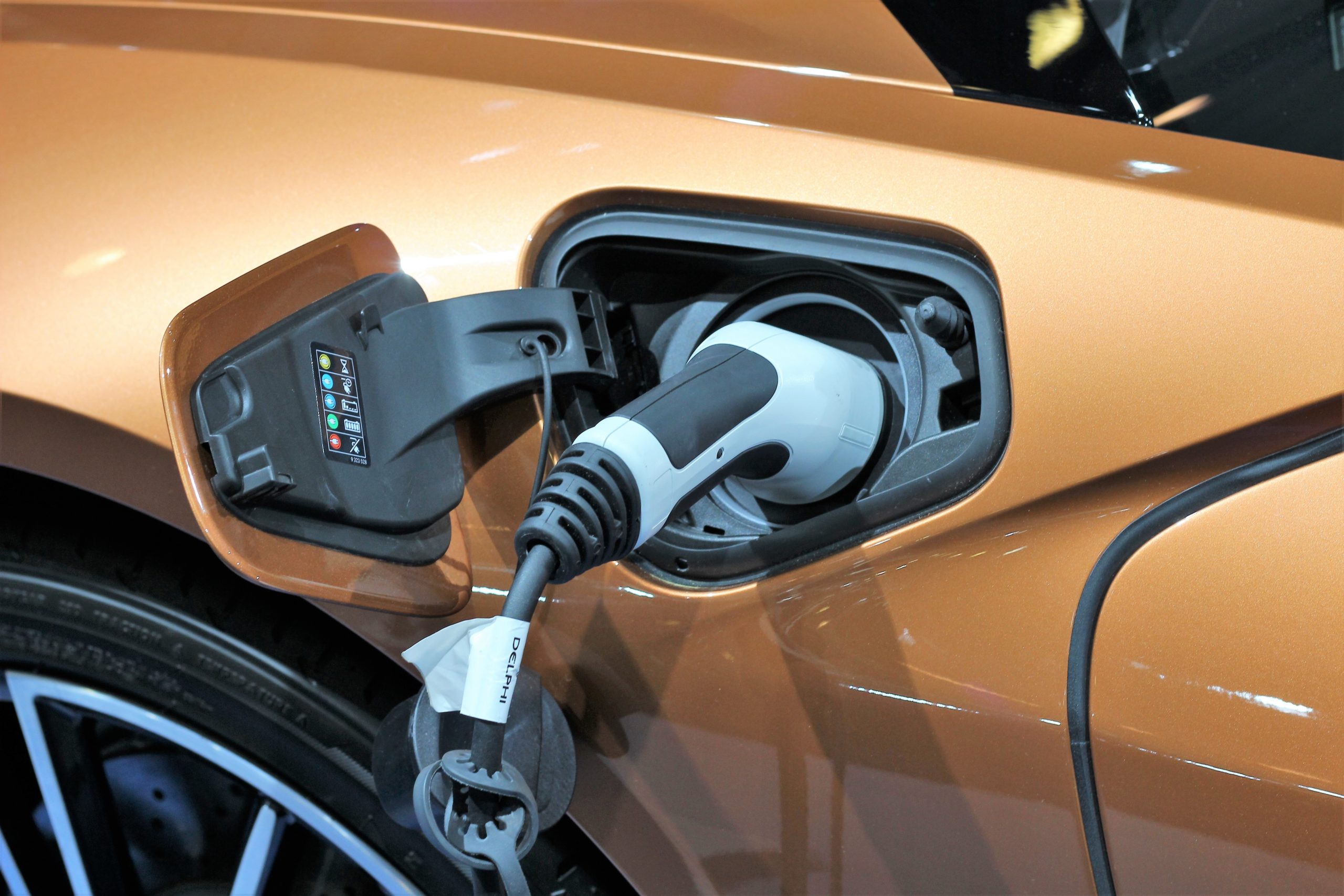A case of greenwashing vs. sustainable vehicle
As the demand for electric mobility grows, hybrid electric vehicles (HEV) are definitely an increasingly popular option.
From a marketing perspective, producers advertise them as a green option compared to classical combustion vehicles. At the same time, consumers frequently enjoy tax benefits and a good conscience from the purchase.
But is this all actually justified? What are the facts surrounding hybrid electric vehicles?
A growing market
Firstly, a look at the current market shows that it is a growing business. In fact, the hybrid vehicle market in 2020 was valued at USD 252.06 billion. By 2026, it is forecasted to reach USD 1166.65 billion – an enormous potential.
Of course, there are different types of hybrid types such as micro-hybrid, mid-hybrid, full-hybrid, and plug-in-hybrid. Still, the overall hybrid market is big, and the trend only points upwards.
Short introduction into the technical
Now getting more into the technical details of hybrid vehicles – what are they made of?
As the term “hybrid” suggests, it is a combination of two things. In this case, there is both an internal combustion engine and an electric motor present in the vehicle.
Concretely, this means that the car is powered by energy from the batteries and by the combustion engine, either simultaneously or alternatively.
Aside from the engine, another key difference between an electric vehicle and a hybrid vehicle is that the battery of the . Instead, the charging is achieved through regenerative braking and by the combustion engine. The exception here is the plug-in hybrid car, where the battery is in fact charged via a plug.
Understanding the motivation
Reasons why consumers choose electric vehicles are numerous. Since many countries have pledged to reduce their carbon emissions, they want to offer incentives for the inhabitants to lessen their carbon footprints as well. Consequently, government initiatives like subsidies, tax rebates and benefits definitely count as large drivers for the electric industry.
Another reason may be the lack of infrastructure when it comes to charging stations. The issues that electric vehicles’ owners frequently face are well-known: large durations of waiting time and trouble finding charging stations when on the road.
Additionally, consumers may want to purchase hybrid cars because of their intrinsic desire to be environmentally friendly.
A sustainable mindset is great, and government subsidies can help the purchasing decisions – but are hybrid cars really better for the environment?
Issues in the production
Of course, the production of any vehicle causes greenhouse gas emissions. Therefore, it is always best to not buy a new car, compared to buying a new one.
But leaving that fact aside, hybrid cars typically use nickel metal hydride (NiMH) batteries or lithium-ion (Li-ion) batteries. With batteries, issues of sourcing and recycling arise: Only a small amount of the batteries are ever recycled and even if they are, this can have harmful effects on the workers and the environment. These aspects need to be considered, especially seeing how the industry is booming and expanding.
When forming opinions about CO2-factors, the emissions caused by the production should be weighed with the emissions saved from driving the hybrid car, which depends (among other things) on the model and producer of the car.
Emissions also come into play when considering the electricity sources which can vary a lot between different regions.
Savings through the usage
When inspecting the in-use phase of an electric vehicle, many advantages are often praised. For instance, reduced emissions, improved fuel efficiency and extra power are all commonly mentioned. That is, energy can be conserved by turning off the engine when the car is idle or when the electric motor is sufficient to power the vehicle. This reduces the fuel consumption and saves emissions, which increases the positive environmental impact: A hybrid car can emit 46% less greenhouse gases than a regular vehicle!
Moreover, the electric motor provides extra power which could entail a smaller engine.
Good idea – bad execution?
However, a big issue centers around plug-in hybrid vehicles. These are also a type of hybrid electric vehicle, but there is one key difference between them and the other hybrid vehicles. This difference lies in how the battery is charged.
Indeed, the batteries of plug-in hybrid vehicles are recharged by plugging them in or via an on-board petrol or diesel engine.
The resulting issue lies in the driver behavior: Many users rarely recharge their batteries, therefore rely on the combustion engine, and continue to emit large amounts of greenhouse gases.
Additionally, many false claims have been made regarding the emissions savings, which creates an unrealistic image as to the environmental impact.
That is why plug-in hybrid cars could potentially have high emissions, even higher than for a pure diesel car.
Conclusion
Finally, the big question: Are hybrid electric vehicles purely a form of greenwashing?
The answer is no, not solely. Hybrid electric vehicles do have several advantages and can help in reducing emissions. Nonetheless, the electricity source needs to be considered, as well as the sourcing of raw materials for the battery. Also, the driver behavior hugely impacts the eco-friendliness of the car.
Moving forward, the growing demand will surely lead to new innovations in the industry – which will hopefully lead to improvements, from the production to the usage.
As of right now, opting for a hybrid car may be the right choice, depending on your location, budget and driving behaviors.
To find out what electric vehicle may be right for you, click here and answer a few questions.
This month is all about mobility, so stay tuned for more articles with interesting facts.
Do you want to stay updated on the monthly topics and become a part of our community? Then follow us on our social media down below and click here to join Komoneed!
Also, let us know:
- Do you consider hybrid electric vehicles to be superior to electric cars?
- Are there government incentives for purchasing hybrid cars in your country?
- Could you do without a car?
- Is there sufficient charging infrastructure where you live?
Sources
- Hybrid Vehicle Market – Growth, Trends, and Forecast (2021 – 2026) (mordorintelligence.com)
- Alternative Fuels Data Center: How Do Hybrid Electric Cars Work? (energy.gov)
- Hybrid Vehicle Market Size, Share and Market Forecast to 2025 | MarketsandMarkets
- Hybrid Car Manufacturing | HowStuffWorks
- Alternative Fuels Data Center: Emissions from Hybrid and Plug-In Electric Vehicles (energy.gov)
- Reducing the Carbon Footprint? How hybrid cars help | Choose Energy®
- Plug-in hybrids are a ‘wolf in sheep’s clothing’ – BBC News
- A Look into Electric/Hybrid Cars from an Ecological Perspective – ScienceDirect






I don’t think buying more cars, whether electric, hybrid or “normal” is the way to go. We need to rethink our consumption patterns first and foremost.
Thanks for your comment! Perhaps the question is… Do we have the required infrastructures to produces those kind of changes?
Personally, I could do w.o. a car, but that is due to my location: in a big city with good infrastructure and public transport, I can totally manage it. But I think people living in smaller towns with perhaps only one bus line face issues, as they can’t just not have a car. So while I won’t be buying a car anytime soon, I can hardly blame someone who needs to buy one…
There are several reason why someone buys a car… The key issue, perhaps, is to begin thinking of what kind of vehicle, taking care of the planet
Sorry, but I think you missed the point here. Yes, greenwashing is an issue, but lets not ignore the progress hybrid vehicles have made in reducing emissions and promoting sustainability. Its about finding a balance, not throwing shade. #GoGreenResponsibly
I cant help but wonder, are hybrids really worth the hype? 🤔
Absolutely! Hybrids are not just a hyped-up trend, they are a practical solution to reduce emissions and save money on fuel. The benefits of improved fuel efficiency and reduced environmental impact speak for themselves. So yes, hybrids are definitely worth the hype!
I mean, sure, hybrids are cool and all, but are they really saving the planet? 🤔 #HybridHypocrisy
this article really opened my eyes about the hybrid car industry! Can we trust them or is it all a big greenwashing scam? 🤔
I couldnt agree more! Its all just a facade to make people feel good about their eco-friendly choices. Hybrids are just another way for car companies to cash in on the green trend without making any real changes. Dont be fooled by the hype, folks! #GreenwashingExposed
I cant find the specific article you mentioned, but I think hybrid cars are overrated. 🚗💨
I respectfully disagree. Hybrid cars offer a tangible solution to reducing emissions and dependence on fossil fuels. Their improved fuel efficiency and lower emissions make them a worthy investment for a greener future. Do some more research before dismissing them.
I cant find the exact article you mentioned, but I think greenwashing is super sneaky! #HybridHypocrisy
Hybrids are just a trendy facade for people who want to feel environmentally conscious.